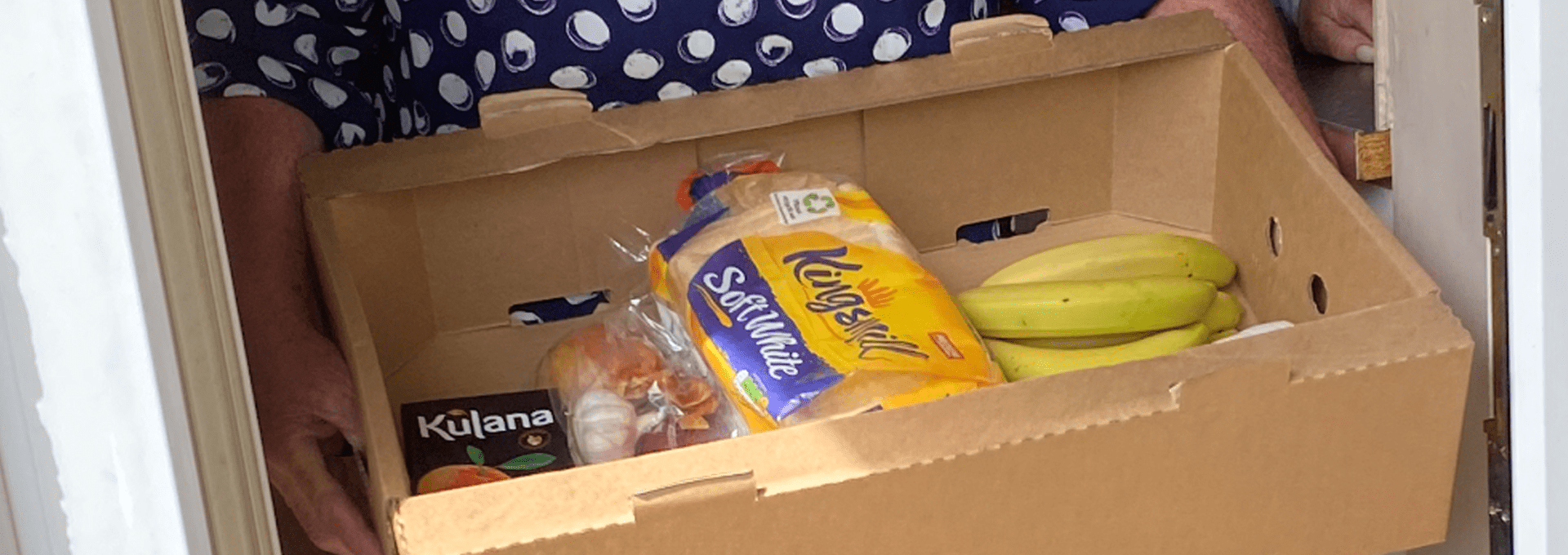The headline from the Spring Budget, presented to parliament by the Chancellor on 6 March 2024, was, once again, the cut to National Insurance rates. However, there were many other announcements made that may have an impact on you and your business.
Henry Pettitt FCA CTA, partner at Stephenson Smart, has delved into the detail…
The Spring Budget announcement included important measures targeted towards working people, families, and small business. Some of which will have an immediate or short-term impact, and some will be less significant or take longer to have an effect. The headline was not surprising in a further 2% cut to National Insurance for employees and a 3% cut to Class 4 National Insurance paid by the self-employed from 6 April this year.
Another area of note for families was the reform to the High Income Child Benefit Charge (HICBC), which currently sees families that claim child benefit start to repay the benefit if one member of a household earns more than £50,000. The changes announced would see the HICBC now start at £60,000 and in 2026 see the HICBC be assessed on an overall household basis. Thresholds for repayment of child benefit in full were announced to be extended from between £50,000 to £60,000 to between £60,000 and £80,000.
In a response to pressure from business groups, the threshold for VAT registration will be increased to £90,000. The approximate increase of 6% will likely have little impact on businesses given the threshold hasn’t changed since 1 April 2017 when it was increased from £83,000 to £85,000 and inflationary increase on sales prices over this period far outstripping this one-off uplift in threshold. This is particularly significant for self-employed tradesmen who cannot always pass on VAT increases to domestic, unregistered customers.
The Chancellor also announced his intention to extend Full Expensing to leased assets and reduce the top rate of Capital Gains Tax, from 28% to 24%, on second property disposals by individuals.
With all measures that can be seen as ‘cuts’ there is always a ‘raise’ to balance the books. These included a new regime for non-UK domiciled individuals (non-doms), the abolition of the Furnished Holiday Lettings tax regime and Multiple Dwellings Relief, alongside a new duty on vaping and an increase in tobacco duty.
National Insurance contributions
Employees
Following the Autumn Statement in 2023, the government cut the main rate of Class 1 employee NICs from 12% to 10% from 6 January 2024. The government has further cut the main rate of Class 1 employee NICs from 10% to 8% from 6 April 2024.
Self-employed
The self-employed generally must pay two forms of NICs: Class 2 and Class 4.
Firstly, the government will amend Class 2 self-employed NICs from 6 April 2024. This means that, from 6 April 2024 self-employed people with profits above £6,725 will continue to get access to contributory benefits, including the State Pension, through a National Insurance credit, without paying NICs. Those with profits under £6,725 and others who pay Class 2 NICs voluntarily to get access to contributory benefits including the State Pension will continue to be able to do so
Secondly, the government will cut the main rate of Class 4 self-employed NICs from 9% to 6% from 6 April 2024.
High Income Child Benefit Charge
The High Income Child Benefit Charge (HICBC) is a tax charge that applies to higher earners who receive Child Benefit, or whose partner receives it.
The government is increasing the income threshold at which HICBC starts to be charged from £50,000 to £60,000 from April 2024. The rate at which HICBC is charged will be halved from 1% of the Child Benefit payment for every additional £100 above the threshold to 1% for every £200. This means that Child Benefit will not be withdrawn in full until individuals have ‘adjusted net income’ of £80,000 or more.
In addition, the government plans to administer the HICBC on a household rather than individual basis by April 2026, with a consultation in due course.
VAT
After many years of having been frozen, the government will increase the VAT registration threshold from £85,000 to £90,000 and the deregistration threshold from £83,000 to £88,000 from 1 April 2024. The government has stated that these new thresholds will be frozen but has not stated for how long.
Full Expensing
The Full Expensing rules for companies allow a 100% write-off on qualifying expenditure on most plant and machinery (excluding cars) as long as it is unused and not second-hand. The rules were originally designed to be effective for expenditure incurred on or after 1 April 2023 but before 1 April 2026. Similar rules apply to integral features and long life assets at a rate of 50%. The government announced in the Autumn Statement 2023 that both allowances will be made permanent.
The Chancellor announced his intention to extend Full Expensing to leased assets. Draft legislation will be published for consultation to help consider any potential extension to include plant and machinery for leasing.
Non-UK domiciled individuals
From 6 April 2025, the current remittance basis of taxation for non-UK domiciled individuals will be abolished and replaced with a residence-based regime. Individuals who opt into the new regime will not pay UK tax on any foreign income and gains arising in their first four years of tax residence, provided they have been non-tax resident for the last ten years. Anyone who has been tax resident in the UK for more than four years will pay UK tax on their foreign income and gains.
The government will also introduce the following transitional arrangements for existing non-UK domiciled individuals claiming the remittance basis:
- an option to rebase the value of capital assets to 5 April 2019
- a temporary 50% exemption for the taxation of foreign income for the first year of the new regime (2025/26)
- a two year Temporary Repatriation Facility to bring previously accrued foreign income and gains into the UK at a tax rate of 12%.
The government will also reform Overseas Workday Relief for employment duties carried out overseas.
Inheritance Tax (IHT) is currently a domicile-based system. The government announced the intention to move to a residence-based system, subject to consultation, but no changes to IHT will take effect before 6 April 2025.
Furnished Holiday Lettings
The Furnished Holiday Lettings (FHL) tax regime will be abolished from April 2025. Draft legislation is to be published and will include anti-forestalling measures that will apply from 6 March 2024. The effect of abolishing the rules will be that short-term furnished holiday lets and longer-term residential lets are treated the same for tax purposes and individuals will no longer need to report the two income streams separately.
Multiple Dwellings Relief and Stamp Duty Land Tax
Several changes will be made to the Stamp Duty Land Tax (SDLT) regime, this includes Multiple Dwellings Relief.
The intention is to abolish Multiple Dwellings Relief, broadly from 1 June 2024 but subject to transitional rules, for purchasers of residential property in England and Northern Ireland.
There are changes to First-Time Buyer Relief to extend it to individuals buying a new residential lease via a nominee or bare trust for transactions with an effective date (usually the date of completion) on or after 6 March 2024, but subject to transitional rules.
Public bodies in England and Northern Ireland will be removed from the scope of the 15% SDLT higher rate charge where the effective date of transaction (usually the date of completion) is on or after 6 March 2024.
The Capital Gains Tax (CGT) rate remains at 10%, to the extent that any income tax basic rate band is available, and 20% thereafter.
Higher rates apply for certain gains, mainly chargeable gains on residential properties, with the exception of any element that qualifies for Private Residence Relief. These rates are changed from 18% and 28% in 2023/24 to 18% and 24% in 2024/25.
There is still potential to qualify for a 10% rate on gains up to £1 million under Business Asset Disposal Relief and £10 million under Investors’ Relief.
The CGT annual exempt amount will be reduced from £6,000 to £3,000 from 6 April 2024.
Other significant announcements included the alcohol duty freeze being extended until February 2025. The temporary 5p cut in fuel duty rates will be extended until March 2025 and the planned inflation increase for 2024/25 will not take place. There will also be a new duty on vaping products from 1 October 2026 and the government will also introduce a one-off tobacco duty increase from the same date.
This was a Budget that promised growth up, jobs up and taxes down. With a general election looming, it was a Budget that included lots of quick wins that will be implemented quickly, rather than waiting for consultations and legislation to be passed.
If you would like further clarification on any of these announced changes, or any support with tax or business, please get in touch.

Did you find this insight useful?
Why not share online
More Insights from Stephenson Smart
19th October 2023
Stephenson Smart’s tax specialists’ team is strengthened by the addition of one of the youngest in the country
At just 16, Bethany Little broke the record as the youngest trainee accountant in Stephenson Smart’s 103-year history. Fast forward five years and she’s done it again – as one of the youngest people in the UK to pass the ...
13th June 2024
Fundraising for PAPYRUS charity in memory of Marina
In memory of our colleague and friend, Marina Watters, we have chosen PAPYRUS charity as our Charity of the Year for 2024. Marina worked at the Fakenham office as an accountant, supporting many local businesses, groups and individuals with their ...
14th May 2020
Accent Fresh adapts to support lockdown families
Accent Fresh in Downham Market are renowned for providing fresh produce and food ingredients to schools, canteens and the hospitality industry across East Anglia. In the wake of coronavirus they lost 90 per cent of their business revenue overnight and ...










